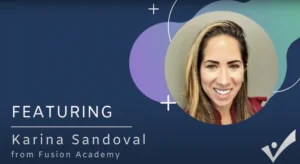Does academic coaching actually work?
- thrivister
- January 3, 2022
Seeking support for students with executive functioning challenges can be exhausting. Navigating services takes time and effort, and results can come slowly. From tutoring to counseling, disability services to medication, there are many ways families try to address academic struggles. Despite the number of services available, many of them don’t get at the root of the problem: a student’s need for strengthened executive functioning skills, confidence, and self-reliance. Enter: academic coaching, a relatively new field in the world of student success strategies. But does academic coaching actually work?
Studies on academic coaching and ADHD/executive function coaching show positive outcomes. Coaching improves students’ GPAs and college retention rates, boosts their confidence, and creates a better quality of life. For many students, coaching has taken them from failing grades to successfully graduating.
Why choose academic coaching over tutoring?
If your child is struggling in all or most of their school subjects, academic coaching is likely a better solution than tutoring. Unlike a tutor, a coach works with students to overcome academic challenges across the board by improving how they learn, not just what they learn. A 2017 study found that “tutoring did not significantly impact the GPA of students with ADHD.” It also found that “higher rates of class withdrawal and probation, as well as lower likelihood of graduation […] point to inadequate support” from traditional avenues.
Let’s review that again because it may have gotten lost in the formality of “study speak.” Studies found that traditional avenues of educational support, like tutoring, help from a parent, time with a teacher after class and plain old trying harder, don’t work for students struggling with executive function skills. So instead of micromanaging and tutoring, coaching is the more effective and long-lasting solution, because it addresses the root of the issue rather than the symptoms. The New York Times recently interviewed a number of ADHD coaches and participants, who said that coaching helped them ‘see the big picture’, manage school, and improve family relationships.
Improved academic performance: higher grades and stronger study skills
 Academic coaches work with students on skills like time management, organization and prioritization. They help students assess their workload and break assignments into manageable tasks, then set schedules for when to accomplish them. They also hold students accountable with frequent check-ins. Thrivister coaches work within the framework of our effective COPE Method to help students improve in four areas: focus, self-management, accountability, and empowerment & goal setting. This method combines the traditional practices of indirect coaching along with more directive elements to hold students accountable and offer executive function support and structure. This method has helped hundreds of our students succeed in school over the past ten years.
Academic coaches work with students on skills like time management, organization and prioritization. They help students assess their workload and break assignments into manageable tasks, then set schedules for when to accomplish them. They also hold students accountable with frequent check-ins. Thrivister coaches work within the framework of our effective COPE Method to help students improve in four areas: focus, self-management, accountability, and empowerment & goal setting. This method combines the traditional practices of indirect coaching along with more directive elements to hold students accountable and offer executive function support and structure. This method has helped hundreds of our students succeed in school over the past ten years.
A recent study from the University of Colorado found that students working with academic coaches for just a single semester saw a rise in their GPA and were less likely to drop out.
In addition to building concrete study skills, coaches help students identify additional academic supports. These include making sure they’re getting the accommodations they’re entitled to, or finding school programs like peer tutoring or faculty counseling. Coaches also work with students to communicate with their instructors when they need to ask for extensions or extra credit. These strategies help students access every available resource and empowers them to advocate for themselves.
Emotional & quality of life improvements
Another significant benefit of academic coaching is better quality of life for students and their families. Students working with coaches report an improved sense of well-being, which has been linked to “more effective and efficient learning.” Their stress levels are reduced, while their resilience and confidence grow. Coaching propels students into a positive feedback loop. Their self-regulation is developed, enabling them to tackle their tasks—further strengthening their self-regulation. According to Dr. Nigg of the Center for ADHD Research, “there’s a number of things we can do to regulate our emotions. These are teachable, and so part of what’s very helpful and very effective for adults is the counseling that works on teaching these coping skills.”
In addition to improving students’ well-being, an academic coach will also help take the strain off of family relationships. When students are held accountable to their coaches for completing their work on schedule, parents can take a step back. Parents are not only able to redefine their role in their student’s success, but students also feel less micromanaged and more self-reliant.
What students have to say about academic coaching
As more studies emerge on the efficacy of academic coaching, and especially ADHD coaching and executive function coaching, anecdotal evidence is plentiful. Thrivister has worked with hundreds of students, bringing them from failing grades and low self-esteem to confident, independent graduates prepared to enter the workforce and adulthood. Here’s what a few Thrivister students and families had to say about their experience.
“This is my fourth semester in college, and in two of them I have had to drop at least three classes. This semester I have all A’s and it is the first time I have actually felt in control of my academics, all due to the organization and support that my coach has provided me.”—Max
“I was almost certain that I was going to get my GED and not complete my credits I still needed for my junior year, but because of Michelle’s guidance and encouragement I was able to complete and pass four courses over this last summer that I needed to graduate […] I am so proud of myself for persevering and continuing on with my senior year, as I am now able to look forward to the future, with college being an almost definite possibility, and all because I had Michelle to guide and push me every step of the way!”—Ariana
“My son has had a wonderful experience with Thrivister. A few months ago our family relocated to America from Indonesia. My son struggled during this transition. He was behind in several subjects in school. He was overwhelmed with the new environment and new curriculum. Then we looked for help online and found Thrivister. After a few months of coaching, my son is doing very well in school. He no longer has overdue assignments, everything’s on track and he has excellent grades in all subjects. Kelley has been guiding him to recognize and overcome his struggles.”—Nancy M.
For more insight, you can find Thrivister student stories here, or visit our How It Works page for information on the coaching process. Still have questions? Contact our team!

M.Ed., BCC, CSS and Co-founder of Thrivister
As co-founder of Thrivister, my purpose and passion is to help young adults with executive function challenges to thrive: manage, organize and be successful in their academics, careers and life. My successful EFS Coaching Method and journey as an ADHD coach, career service specialist, author, blogger, podcaster and board-certified coach for over a decade, has laid the foundation for our platform.
We believe opportunities are plentiful for someone with executive function challenges when they have the support and resources behind them. It is our mission through Thrivister to help as many people as possible be successful academically and into their future careers and life.

7 Trailblazing Celebrities and Icons Living & Thriving with ADHD
Explore the inspiring journeys of 7 influential individuals who have harnessed their ADHD to achieve greatness and make a lasting impact.

Unveiling the Complexities of ADHD: Insights from Dr. David Pomeroy
Unveiling the Complexities of ADHD: Insights from Dr. David Pomeroy https://youtu.be/EotABukIxlo Attention Deficit Hyperactivity Disorder (ADHD) is a multifaceted condition that impacts millions of lives

Navigating ADHD in Teens: Insights from MFT, Kelsey Thompson
Navigating ADHD in Teens: Insights from MFT, Kelsey Thompson https://youtu.be/omQndscdD5U In a recent interview with Kelsey Thompson, a seasoned Marriage and Family Therapist at The

Unlocking Potential: A Glimpse into Fusion Academy’s Personalized Education Model
Unlocking Potential: A Glimpse into Fusion Academy’s Personalized Education Model https://youtu.be/R7BgYW6A6k4 In the bustling world of education, where traditional models often struggle to meet the

